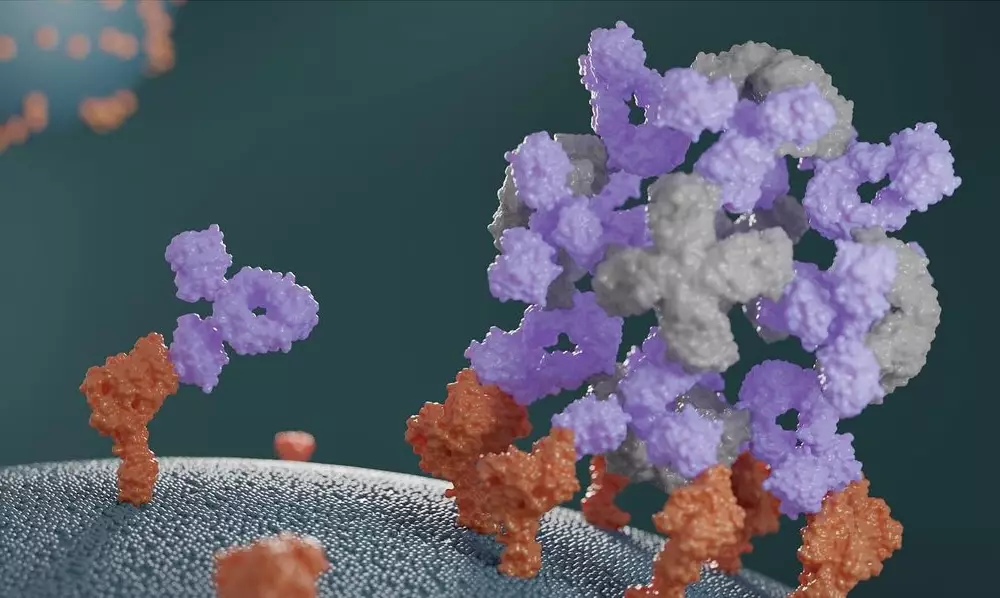In the ever-evolving landscape of biotechnology, Archon Biosciences has made headlines by securing an impressive $20 million in seed funding, marking its transition from a stealth startup to a promising player in the field. This Seattle-based company has its roots in the Baker Lab at the University of Washington, led by the esteemed computational biologist and Nobel Prize winner David Baker. Specializing in the design of novel biomolecules using artificial intelligence, Archon aims to augment antibody treatments through innovative technologies. Their flagship product—protein “cages” designed to enhance the efficacy of antibodies—could usher in a new era for drug development.
Antibody therapies have gained prominence in treating various diseases, including cancers and autoimmune disorders. However, the efficacy of these treatments is often hindered by the inherent unpredictability of molecular biology. A major limitation of standard antibody therapies lies in the challenge of ensuring that antibodies effectively bind to their intended targets within the body. The random nature of molecular interactions means that many antibodies fail to make the necessary connections, which ultimately affects treatment outcomes.
It is in addressing this critical issue that Archon’s innovation shines. By employing what they call antibody cages (AbCs), Archon aims to transform the way antibodies function. The company’s approach leverages the principles of molecular scaffolding to dramatically improve the likelihood that antibodies will successfully bind to their targets. By clustering multiple antibodies into a single, multi-faceted structure, Archon’s AbCs increase the overall binding potential, thereby enhancing therapeutic effectiveness.
The technology underpinning Archon’s antibody cages is rooted in groundbreaking research conducted at the Baker Lab. Their proprietary protein design platform utilizes advanced generative algorithms to create customized proteins tailored to specific therapeutic needs. This platform not only facilitates the innovative design of protein cages but does so efficiently enough to allow for rapid in-house manufacturing and testing.
James Lazarovits, co-founder and CEO of Archon, articulated the company’s vision in a recent press release, emphasizing that the transformative potential of their technology lies in overcoming the limitations of existing biologics. “We have developed a proprietary protein design platform coupled with rapid in-house manufacturing and testing to revolutionize how biologics are developed,” he stated. This dual approach is critical in ensuring that new treatments can be brought to market swiftly while maintaining rigorous testing protocols.
Recent funding rounds demonstrate the confidence investors have in Archon’s innovative solutions. With Madrona Ventures leading the $20 million investment, a diverse group of venture capital firms has recognized the potential of Archon’s technology. This significant financial backing complements previous grants totaling $7 million from various institutions and government bodies, underscoring the project’s credibility and promise.
What sets Archon apart from other biotech firms is not merely its funding, but rather its strategic approach to biotechnology. By using existing manufacturing methods for proteins and antibodies, Archon sidesteps the complexities often associated with biotech production. This strategy means that their antibody cages could be produced on a large scale, making the technology more accessible for widespread therapeutic applications.
As Archon Biosciences continues to develop its antibody cages, it stands at the forefront of a paradigm shift in the biotechnology industry. By harnessing the foundational work of the Baker Lab and integrating cutting-edge design and manufacturing techniques, Archon is poised to address pressing challenges in antibody treatment effectiveness.
The implications of their technology are profound: not only could it lead to more successful treatment outcomes, but it may also facilitate the discovery of new drugs targeting previously inaccessible biological mechanisms. As Archon moves forward, its commitment to innovation and rapid implementation positions it as a key player in the future of drug development, with the potential to revolutionize how biologics are designed and manufactured in the years to come.

